As Refugees Surge, European Voters Show ‘Resilient’ Support, Study Finds
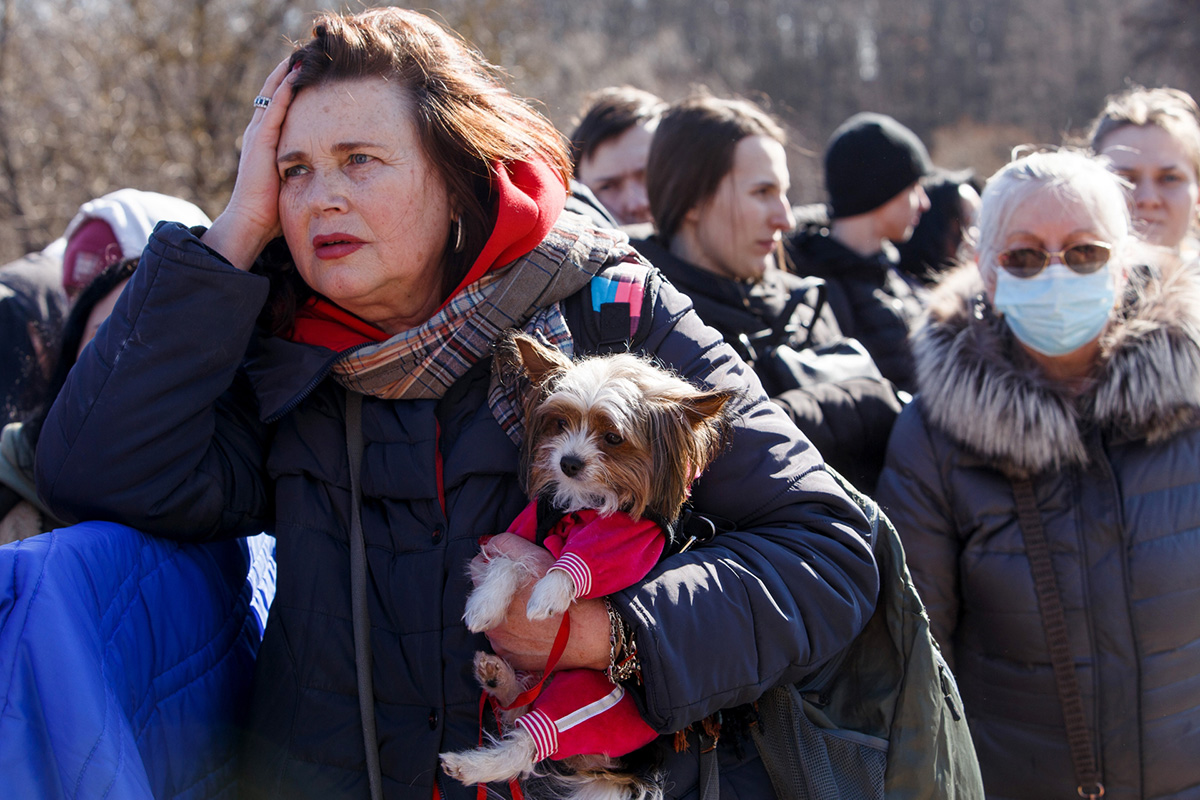
With regional conflict driving millions of refugees from the Middle East and Ukraine to leave their homes for safe haven in Europe, a powerful narrative has emerged: The tides of immigration are driving a backlash, with hard-right populist parties using the crises to advance their power.
Now research co-authored at UC Berkeley has reached a starkly different conclusion. Despite the surging numbers, the authors found, European support remains solid for refugees who are forced to leave their home countries.

Photo by Brittany Hosea-Small
“These results demonstrate that support for asylum-seekers has increased despite the repeated crises,” the research concludes, “and that this increase in support extends broadly to all refugees, not just to Ukrainians, and is also shared among voters on both ends of the political spectrum.”
The study, “Europeans’ support for refugees of varying backgrounds is stable over time,” was published today in the journal Nature. It was written by Berkeley political scientist Kirk Bansak, Jens Hainmueller of Stanford University and Dominik Hangartner of ETH Zurich, a public research university in Switzerland.
Bansak joined the Berkeley political science department in 2022. His research interests include refugee resettlement and asylum politics, public opinion and quantitative analysis.
Starting in 2015, the Syrian civil war, the escalation of the Islamic State military attacks and other conflicts led to surging migration to Europe, with nearly 1.5 million asylum applications in 2015 and 2016. But those numbers are dwarfed by the refugee crisis resulting from Russia’s invasion of Ukraine: Nearly 7.3 million Ukrainians have arrived in other European countries since February 2022.
In an interview with Berkeley News, Bansak described his research results — and why they are so surprising. The interview has been edited for length and clarity.
Berkeley News: Before we get into the details of your research, can you set the stage? What is the global context that makes your findings so pertinent?
Kirk Bansak: Seven or eight years ago, we had what's been termed the Syrian refugee crisis, in 2015 and 2016. That, of course, was largely driven by the Syrian civil war, and it led to what was then the largest influx of refugees on the European continent since World War II. Now fast forward to 2022: There have been so many Ukrainian refugees that this has become the new largest influx of refugees in Europe since World War II.
In this context, some important questions come to mind: With these repeated humanitarian emergencies and the consistent strain on Europe’s asylum system, has there been a general decline or fatigue in the European public's willingness to accept asylum-seekers? Has this continued strain altered the patterns of support in terms of the types of asylum-seekers Europeans prefer?
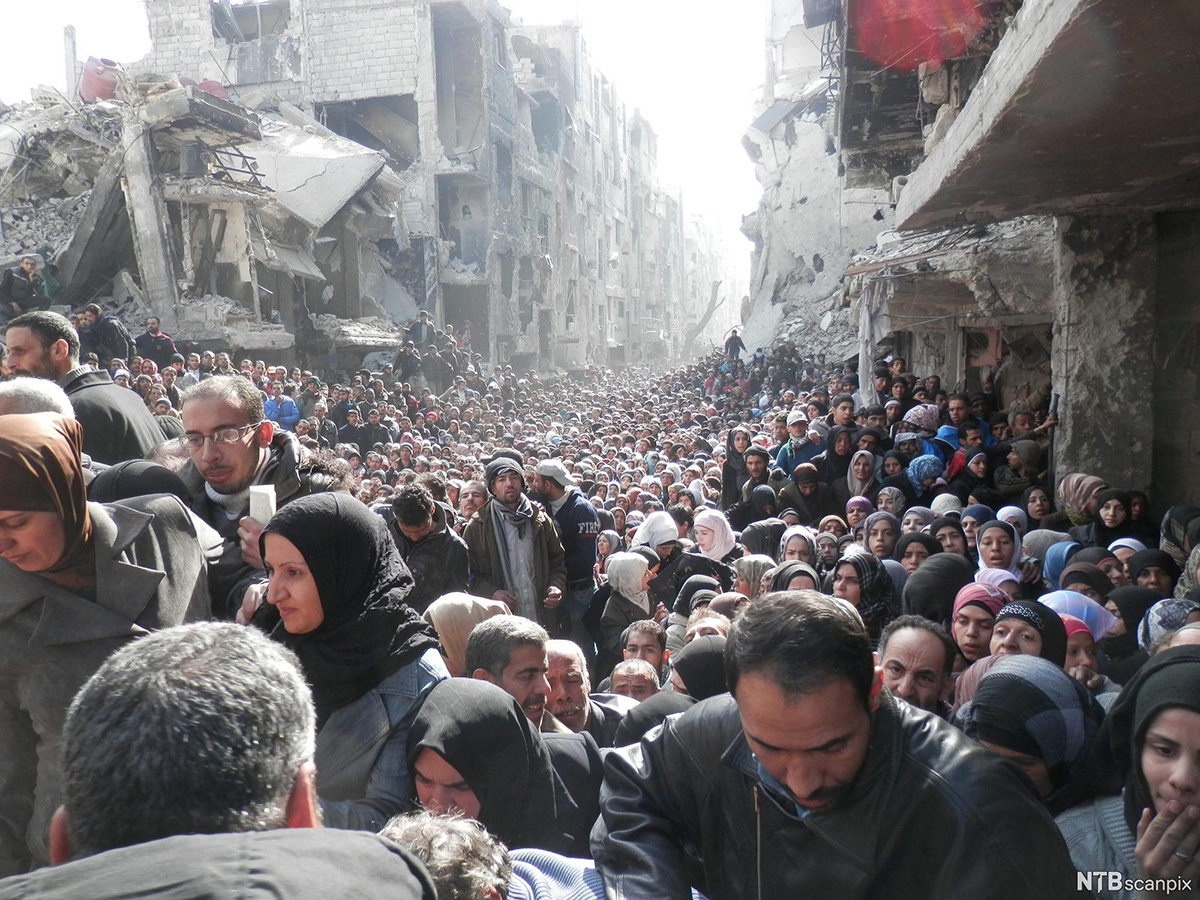
UNRWA United Nations Relief and Works Agency via Via Norwegian Digital Learning Arena (NDLA)
We also need to consider that today’s Ukrainian refugees are more geographically proximate, they're more geopolitically proximate, more culturally proximate to Europeans than refugees from Syria, Afghanistan and other countries that comprised the bulk of previous asylum flows. And we’ve seen Europe seem to welcome Ukrainian refugees with open arms.
So that raises other questions: Is the particular support for Ukrainians driven by their national identity, or by something else? Does that surge in support for Ukrainian refugees crowd out support for refugees from other countries and other backgrounds?
What are the core findings of your new research?
The first key finding relates to the welcome Ukrainians have received. We do find it's driven partially by their nationality, but more importantly it’s driven by their distinctive demographic, religious and displacement profile, relative to asylum-seekers from other countries.
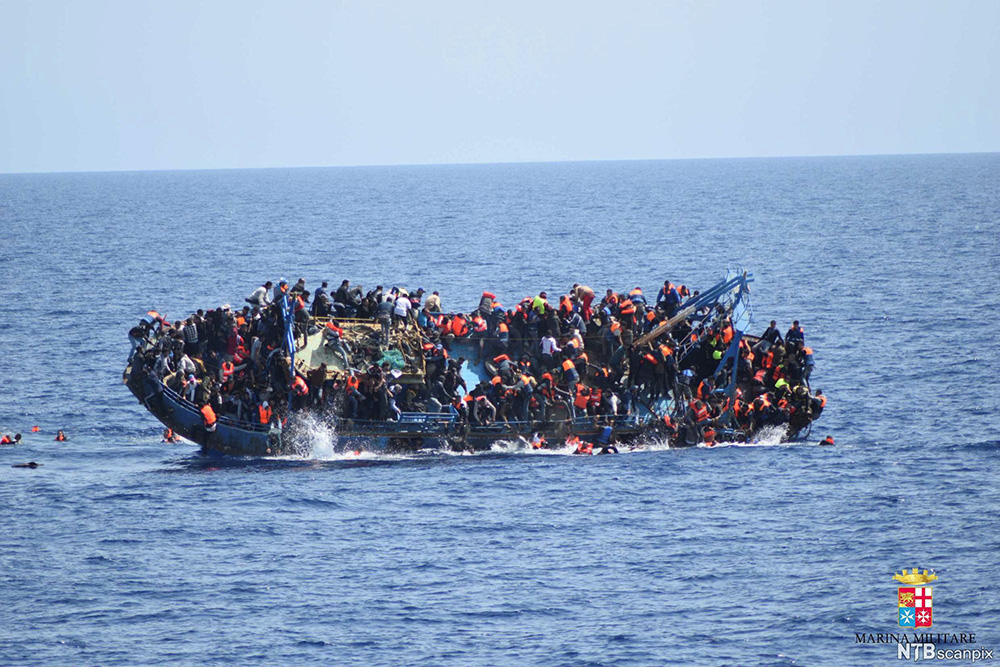
Photo by the Italian Marina Militare via the Norwegian Digital Learning Arena (NDLA)
According to a number of surveys, including data from the UNHCR (United Nations High Commissioner for Refugees), we know that Ukrainian refugees are predominantly women and Christian, they're younger, they're often more highly educated. And for those who are old enough to work, they are more likely to have worked in medium- or high-skilled occupations. Refugees with these characteristics we find in our study are preferred by the European public.
The second key result relates to the stable influence of all those characteristics on European attitudes: They have changed little to not at all since the first phase of our study in 2016. The results in 2016 versus 2022 were virtually identical.
And finally, a third key result also finds stability in the total amount of support Europeans have for asylum-seekers overall. The degree of responsibility they're willing for their region to shoulder — we have found that has not actually decreased, as one may have feared, due to some sort of compassion fatigue over time. Instead, support remains relatively unchanged since 2016. If anything, it's actually increased.
Is there a single unifying theme in these core findings?
If there's a single unifying theme, I think it's one of resilience in the attitudes among the European public. The welcoming of Ukrainian refugees has been driven largely by public preferences that already existed, rather than being a sudden reaction to a new state of affairs. And support for asylum-seekers, in general, has not waned over time, as many feared.
One element of your research that I found really interesting was that Europeans, the respondents in your studies, are more likely to favor a certain asylum-seeker profile. Could you elaborate on that?
Europeans are much more likely to support a Christian asylum-seeker than a Muslim asylum-seeker and much more likely to support an asylum-seeker who has host country language skills and or was previously occupied in a skilled profession.
So what this means is that there’s a bit of a disjuncture between public opinion and international legal norms. There is a legal requirement that asylum-seekers not be treated preferentially on the grounds of things like religion or professional skills.
On the other hand, some of the other results reveal that European preferences are at the same time strongly driven by humanitarian concerns related to things like persecution faced by refugees and special vulnerabilities that some have. And these factors play a powerful role across the different European countries we surveyed and across all types of asylum-seekers.
That is, these considerations are important to Europeans no matter what an asylum-seeker’s religion and employability happen to be.
I’m feeling a slight disconnect. On the one hand, you’re saying most Europeans have a preference for certain characteristics: female, Christian, skilled, experienced. On the other hand, you say that Europeans were, for the most part, welcoming to refugees from Syria and Iraq in 2015, although they often lacked those characteristics.
We do see more support for Christian asylum-seekers than for Muslim asylum-seekers. That's definitely true, but other characteristics such as fleeing persecution or the consistency of the asylum claim matter too, again regardless of religion.
In addition, it's not the case that that gap has widened with the influx of Ukrainian refugees. Support for Muslim asylum-seekers, while lower than for Christians, actually increased in the majority of the 15 European countries we surveyed in 2022 compared to 2016.
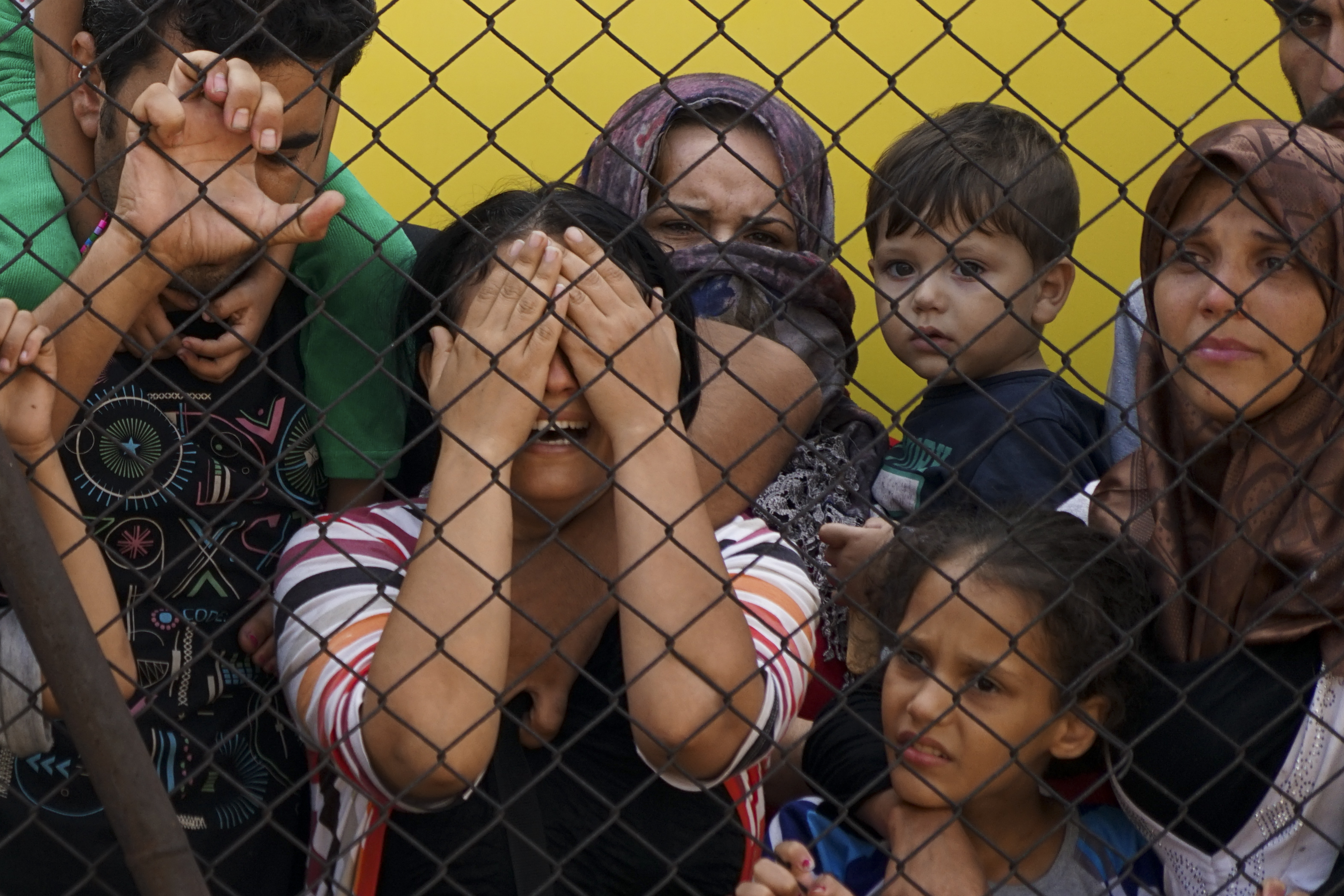
Separately, we’re also seeing stable or even increased support between 2016 and 2022 for non-Ukrainian asylum-seekers. This is the case in every country we surveyed.
In the current environment, one might expect greater polarization of attitudes toward refugees — that would imply that support for refugees increases among left-wing voters but decreases among right-wing voters. But again, our data contradict that possibility.
Right-wing voters are much less supportive of asylum-seekers than left-wing voters — something we already knew from past research. But we found that there is slightly higher support in 2022 relative to 2016 among both right-wing and left-wing voters. So this resilience in European opinion applies to both Ukrainian and non-Ukrainian asylum-seekers. It applies to Christian and Muslim asylum-seekers. It's manifesting among both left-wing and right-wing voters.
But the impression one gets from afar is that these waves of refugee migration into Europe are driving a powerful right-wing reaction, so that countries like Sweden and Italy swing to the right, or hard-right forces in Germany and other countries gain momentum as a result. Your research seems to say that such impressions overstate reality on the ground.
There's a limit to what I can say about this based directly on the results of our research, but I think I might be able to piece some of the results together into some informed conjecture. I actually think that our results can be consistent with everything you just described.
Other research has shown that certain parties’ anti-immigration positions have played an important role in attracting voters. But there's a difference between mobilizing voters by activating underlying sentiments that already exist, on the one hand, and on the other hand actively generating or spreading such sentiments among a larger segment of society.
Our findings call into question the ability of these parties to seriously alter the landscape of underlying public opinion on this hot-button issue.
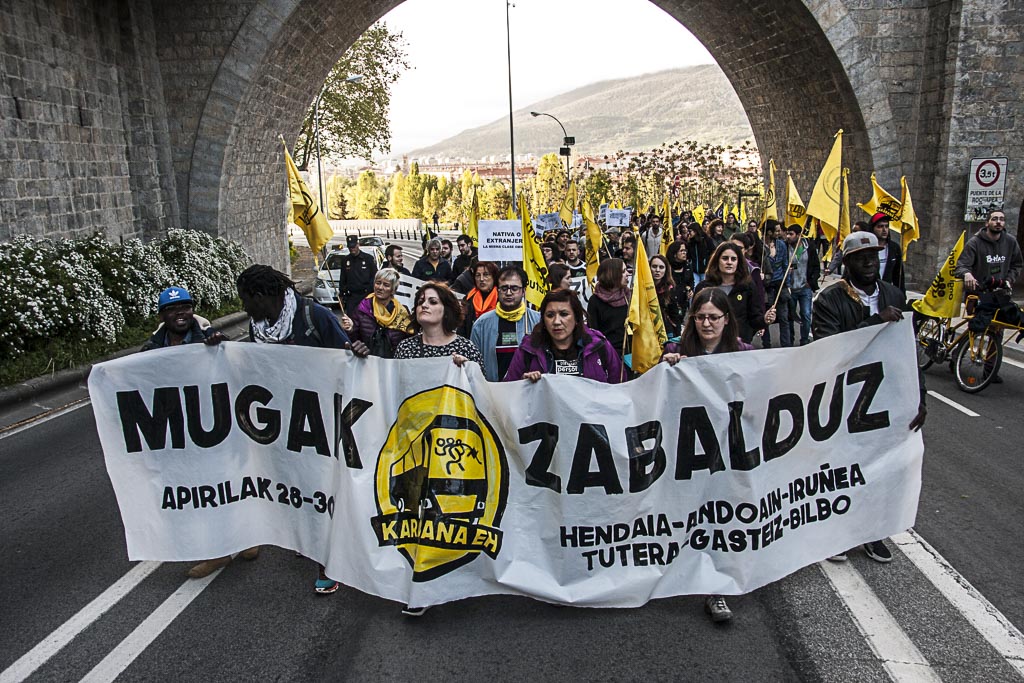
The degree to which anti-immigration, populist parties have risen to power varies quite a bit nation by nation in Europe. But in spite of all those differences, we're seeing mostly similar trends in our results across countries.
It’s not part of our research, but I think this is all consistent with the notion that anti-immigration or, more generally, populist sentiments, are manifesting at a much deeper level in society where there is a confluence of all sorts of things — the effects of globalization, systemic economic developments, longer-term demographic trends. As a result, such sentiments can be activated and taken advantage of by political actors, but not easily created or expanded upon.
Let's pivot here: In Europe, especially, what are the policy implications of your findings?
There's a worry that the focus on Ukrainian refugees — a more geographically, geopolitically, socially and culturally closer group — could lead Europe to commit less resources for helping asylum-seekers who come from more distant lands. Given that Europe is the nucleus for the global asylum regime, this possibility is concerning for those who seek to continue providing protection for people in need, independent of their origin country.
But our results suggest that, from a public opinion perspective, that's not the case. That's really important: The underlying support and generosity of the European public is paramount for incentivizing elected policymakers to sustain the asylum system.
A second policy implication: The fact that there is this strong and seemingly durable consensus over the specific types of asylum-seekers that are preferred — that cuts both ways. Those preferences indicate that there's probably some base level support that we might always be able to expect for asylum-seekers. But it also means there's a limit in the extent to which policymakers may be able to generate support for refugees that are viewed as less desirable, even when that flies in the face of legal requirements.
This is especially important at this moment because the European Parliament —representing citizens in the European Union — is set to consider a major proposal to reform Europe's asylum system. That's already been agreed to by European governments and now it has to make its way through negotiations with the European Parliament.
What the public is going to support, what the public is willing to tolerate, is critical for making sure any agreements that arise today can be sustained into the future.
In the U.S., of course, anti-immigrant sentiment is a powerful force in conservative and right-wing political attitudes. Does your research have any lessons for the U.S. public, or for our political leadership?
That's a tough question, and I hesitate to draw too many connections between our results and political considerations in the U.S. just because we didn't collect data in the U.S. What I would say is that other scholars have done similar research on U.S. public preferences with respect to different types of asylum-seekers using similar research designs to ours. And what they found are, by and large, patterns that match pretty closely with what we found in Europe.
That being said, there are of course many things that differentiate political dynamics in the U.S. from those in Europe, but there are also plenty of similarities. If I had to guess, I don't think that there is necessarily any reason to believe that core mechanisms of political psychology are going to be fundamentally different in the U.S. than in Europe.
So to the extent that public support for refugees may be part of some sort of deeply held belief system that remains relatively stable over time, if that's the case in Europe, I might also expect that to be true in the United States, at least for a large part of the electorate.